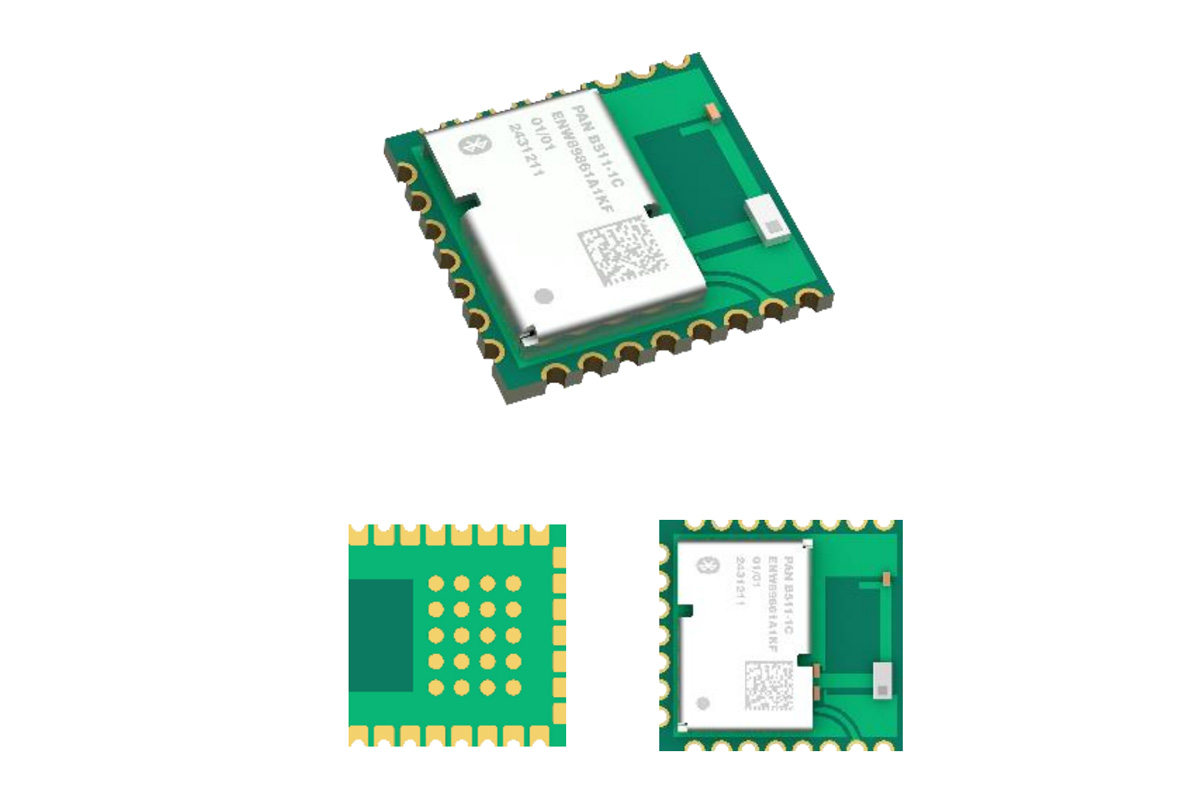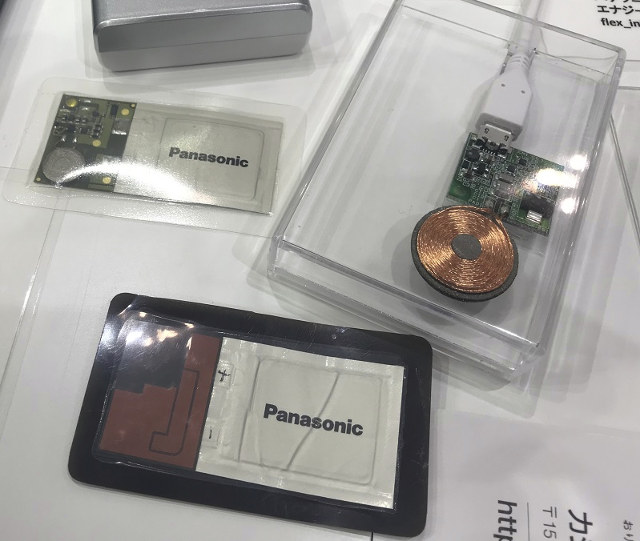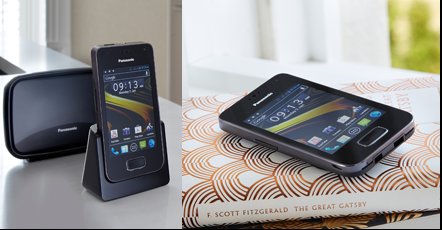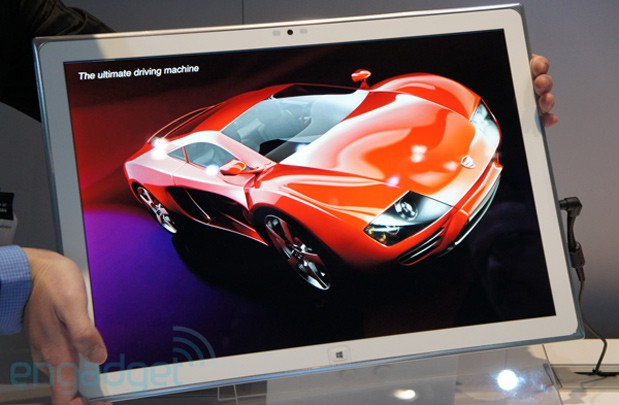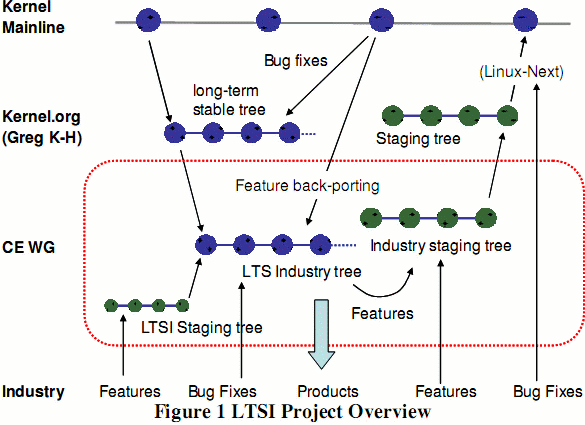Panasonic industry has recently introduced the PAN B511-1C Bluetooth 6.0 and 802.15.4 module based on the Nordic Semi nRF54L15 SoC and designed for ultra-low-power wireless communication. The compact module integrates a chip antenna, 32MBit flash memory, two Crystals, and the Nordic nRF54L51 which provides a 128 MHz Arm Cortex-M33 microcontroller with Bluetooth 6.0 (LE), Thread, Zigbee, and Matter, along with multiple peripherals such as SPI, UART, I2S, PWM, and ADC. The PAN B511-1C also implements security features to support secure boot, secure firmware updates, cryptographic acceleration, and tamper detection, making it suitable for a range of IoT, industrial automation, smart home, medical (wearables), and battery-powered applications. PAN B511-1C module specification: SoC – Nordic Semiconductor nRF54L15 MCU cores Arm Cortex-M33 with Arm TrustZone @ 128MHz RISC-V coprocessor for software-defined peripheral Memory – 256KB SRAM Storage – 1.5MB non-volatile memory Wireless Bluetooth 6.0 Data rates – 2Mbps, 1Mbps, 500kbps, 125kbps Features AoA / […]
Panasonic Showcases Flexible Batteries with Wireless Charging System
Flexible batteries such as PowerStream lithium polymer batteries can be integrated into new application such as smartcards, and could help wearables have longer battery life by adding batteries into clothes, wristbands or chestbands for example. You’d still need to charge them however, and in some cases adding a USB port (micro USB or type C) may negate the benefit of having a thin flexible battery, but Panasonic has a solution as the company added wireless charging capability to their flexible batteries. The solutions showcased at Ceatec Japan 2017 on October 3-6, 2017 were flexible lithium-ion rechargeable batteries with 0.45mm thickness, and 18, 42 and 65mAh capacity. Battery voltage is 3.8V, charging voltage 4.35V, and the batteries can be bend up to a radius of 25 mm, and twisted by up 25°. Such batteries are meant to be attached to human body and clothes for medical and health management applications, or […]
Google Assistant News – AIY Voice Kit For Sale, Offline Support, 3rd Party Smart Speakers Announced
There’s been a lot of development related to Google Assistant in the last few days. First, Google provided an update for AIY Projects, with their AIY Projects Voice Kit now available for pre-order on Micro Center for $35 including a Raspberry Pi 3 board, making the kit virtually free, although you may also purchase it. Note that Micro Center blocks traffic originating from some countries, so I had to use Zend2 to access the site. [Update 10/09/2017: You can also get it from Seeed Studio for worldwide shipping] Google also announced the Speech Commands Dataset with 65,000 one-second long utterances of 30 short words, which they are in the process of integrating with the next release of the Voice Kit, and will allow the devices to respond to voice commands without the need for an Internet connection. So if you lose your Internet connection, or want to isolate your Voice […]
Panasonic Unveils KX-PRX120 Android 4.0 DECT Phone
Panasonic has just introduced KW-PRX120 a cordless phone (DECT) running Android 4.0 on a 3.5″ display. It just looks like your smartphone, but you can only use it within your home. KW-PRX120 specifications and features: Display – 3.5 inch TFT colour LCD (HVGA) with capacitive multi touch screen Connectivity – Wi-Fi, Bluetooth, GPS Camera – 0.3M pixel Front Camera Battery – 1450mAh Li-ion Battery Storage – microSD / microSDHC Card Slot on Handset USB – micro USB Charging Port Phone features: Incoming/Outgoing Call Barring to help minimise unwanted or nuisance calls Caller ID, Caller ID memory Answering Machine (40min) Key Finder accessory (Optional) Up to 6 handsets (Optional handset or GAP supported DECT handset) can be registered The company did not mention details about the processor, RAM, or storage in the device, but it comes with Google Play, so you’ll be able to install (most of) the apps you’re alreading […]
Panasonic Unveils 20″ Tablet With 4K Resolution
For those of you in need of high resolution tablet, Panasonic has unveiled a 20″ tablet powered by an Intel Core i5 processor running Windows 8 Pro with 3840 x 2560 resolution. This tablet is mainly targeted at professionals, and Panasonic has demos for 3 use cases at CES 2013: car dealers, designers and architects, and photographers. The specifications of Panasonic tablet are as follows, but may slightly change once the product is officially available: Processor – Intel Corei5 3427U vPro 1.8 Ghz CPU GPU – NVIDIA GeForce Graphics Memory – 4GB memory (16GB max) Storage – 128GB SSD + 1x micro SD card (SDXC) Display – 20-inch IPS-alpha display panel with 3840 x 2560 (230ppi) resolution (15:10 aspect ratio) Connectivity – IEEE802.11a/b/g/n, Bluetooth V4.0 wireless 1x USB 2.0 High resolution digital pen (Anoto live pen) Camera – HD 720p front camera Battery life – Up to 2 hours Dimensions […]
Long Term Support Initiative (LTSI) Linux Kernel for Consumer Electronics
The Linux Foundation announced a new project, the Long Term Support Initiative (LTSI), created by the Consumer Electronics Workgroup (CE WG) at Linuxcon Europe 2011 in Prague. LTSI aims at reducing duplication of effort in maintaining separate private industry kernel trees. The LTSI project intends to deliver an annual release of a Linux kernel suitable for supporting the lifespan of consumer electronics products and regular updates of those releases for two to three years. The project is backed by several companies in the consumer electronics industry including Hitachi, LG Electronics, NEC, Panasonic, Qualcomm Atheros, Renesas Electronics Corporation, Samsung Electronics, Sony and Toshiba. LTSI will allow device makers to spend less time doing significant back-porting, bug testing and driver development on their own, which carries substantial cost in terms of time-to-market, as well as development and engineering effort to maintain those custom kernels. In some ways, this is similar to Linaro, […]


